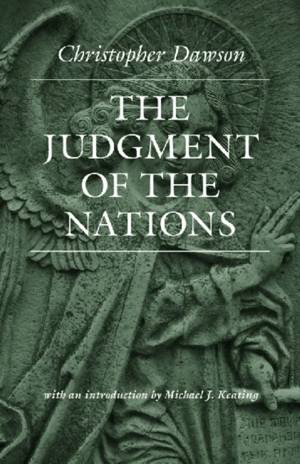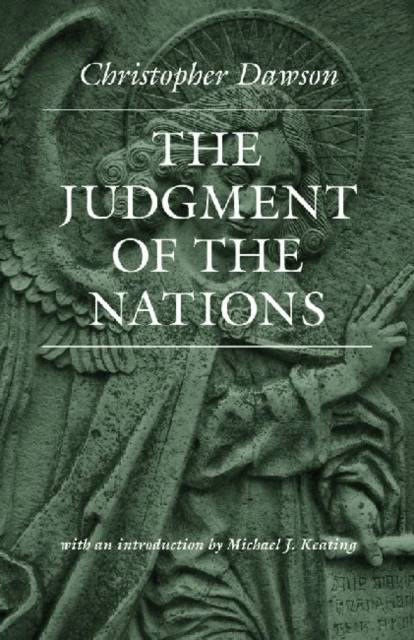
- Retrait gratuit dans votre magasin Club
- 7.000.000 titres dans notre catalogue
- Payer en toute sécurité
- Toujours un magasin près de chez vous
- Retrait gratuit dans votre magasin Club
- 7.000.0000 titres dans notre catalogue
- Payer en toute sécurité
- Toujours un magasin près de chez vous
Description
Christopher Dawson wrote The Judgment of the Nations in 1942, in the midst of the horrors of World War II. He took four years in the writing of it, years, he claimed, "more disastrous than any that Europe had known since the fourteenth century." By his own admission it had cost him greater labor and thought than any other book he had written. It is, perhaps, his most characteristic work.
Dawson argues in compressed form for what he laid out more systematically in other books: his view that the West was at an hour of crisis and was fighting for its life as a civilization. He did not view the disasters of the two World Wars as the cause of that disintegration; they were rather symptoms of a much deeper malaise, that of the loss of the spiritual vision that had created and sustained Western culture through the centuries. He lays out his understanding of what might be necessary for the West to reengage its spiritual and cultural roots and find a new way forward. For Dawson, such a restoration could not be coercive, but needed rather to be based upon a new perception of the inherent cultural creativity of Christianity.
The Judgment of the Nations was widely praised upon publication. The Guardian called it "an appraisement of the contemporary situation by an historical thinker of the first importance," and the Irish Independent "a monument, alike of historical and of philosophical erudition." It was Dawson's hope in this work to describe the nature of the spiritual struggle Europe was facing, to map out its true lines, and to point the way through an impending and perhaps probable disaster to a renewal of European life, a renewal whose success or failure would have a decisive impact on the entire world.
ABOUT THE AUTHOR:
Christopher Dawson (1889-1970) is recognized as one of the most important Catholic historians of the twentieth century, authoring numerous books, articles, and scholarly monographs. Dawson was lecturer in the History of Culture, University College, Exeter; Gifford lecturer; Charles Chauncey Stillman Chair of Roman Catholic Studies at Harvard University from 1958 to 1962; and editor of the Dublin Review.
Spécifications
Parties prenantes
- Auteur(s) :
- Traducteur(s):
- Editeur:
Contenu
- Nombre de pages :
- 158
- Langue:
- Anglais
- Collection :
Caractéristiques
- EAN:
- 9780813218809
- Date de parution :
- 14-11-11
- Format:
- Livre broché
- Format numérique:
- Trade paperback (VS)
- Dimensions :
- 140 mm x 213 mm
- Poids :
- 217 g

Les avis
Nous publions uniquement les avis qui respectent les conditions requises. Consultez nos conditions pour les avis.






